When she was younger, Natalya Brikner spent nights on her trampoline waiting for the International Space Station to pass overhead. In high school, she built a scaled down model of a wind turbine, intrigued by the math involved and its potential to make a positive impact on the world. This inspiration, coupled with a lot of hard work, led her to her role today as the CEO of Accion Systems - a company that uses novel ion beam technology to create propulsion systems for satellites.
While she has always had an affinity for space, her passion for space propulsion was ignited as an undergrad studying aerospace engineering. One of her professors at the time mentioned that electric propulsion field (the technology that Accion uses) had remained stagnant since the 60s. The lack of innovation in the industry motivated Natalya to receive her PHD from MIT, where she met Accion’s co-founder in a space propulsion class.
Together with her co-founder, Natalya is making a positive impact on the world. They are creating propulsion systems suitable for small satellites that are safe and non-explosive. As Natalya looks towards the future, she aims to develop Accion beyond space propulsion, grow as a leader, and continually challenge the perception of women in her field...as well as apply to the astronaut corps!
This interview was originally published in May 2015.
Her Starting Point
You attended San Diego State for your undergrad and studied Aerospace, Aeronautical, and Astronautical Engineering. How were you exposed to aerospace engineering in high school and when did you first realize that it was the path for you?
In high school, I built a scaled model of a wind turbine and realized that engineering combined my love of math with a practical aspect that had the potential to make an impact on the world. It also helped that I struggled with history and other memory-intensive subjects, and that I faint in the presence of needles.
Aerospace engineering was particularly exciting to me after many nights on my trampoline waiting for the International Space Station to pass over while pondering the Drake equation. Then during the last couple weeks of one class in college the professor skimmed over electric propulsion, which is what I work on now, remarking that “The field hasn’t changed since the 60s and no one really knows what they’re doing. There are a lot of innovations to be made.” And I thought, challenge accepted.
You were first in your class, out of 40, in Aerospace Engineering. What were your study and research tactics that helped you succeed?
During my first year of college I connected with a group of students in my physics class and we spent every Friday and Saturday night in the library. We’d do all of the assigned problems on our own and then teach them to the group, and after that we’d make up our own problems and try to stump ourselves.
I also signed up for every extracurricular activity I could--I ran and volunteered with the Engineering Honor Society Tau Beta Pi, started my school’s chapter of the Aerospace Honor Society Sigma Gamma Tau, joined a Design Build Fly competition and built a small aircraft that dropped tennis balls on targets, volunteered with girls in middle school to encourage them to pursue STEM, and so on.
I’ve kept up all of these habits to this day: logging the hours when everyone else is out partying or watching TV, using teaching others as a way to learn challenging material, and refusing to learn how to say no.
Can you tell us about the most beneficial class you ever took?
An ionized gases class at MIT. It was a wonderful combination of plasma physics and practical electric propulsion system design. It was very challenging but the lectures were phenomenal.
From San Diego State you went on to receive your MS from Duke University and eventually your PhD from MIT. What was the most challenging part of your trajectory? How did you keep from getting burnt out?
My Duke advisor left one year into my PhD and the department offered to switch me to a thesis topic that is definitely interesting and important to the world and all of that, but it wasn’t space propulsion. I have always viewed work as an extension of myself because I absolutely love what I do so I knew I had to transfer (to MIT), but it was hard and I left behind a serious relationship, a dog, good friends, and 30% of the work required for a PhD.
The next hardest stretch was preparing for my thesis defense and fundraising for Accion. I defended my PhD and closed our seed round in the same week. I had never been so tired and had such significant milestones clustered so close to one another. My MIT advisor’s words were something like “If you’re crying in my office it means you’re almost done!” I try to remember how short these periods of awfulness are in the grand scheme and just keep on keeping on.

Her Big Break
Can you tell us about your company, Accion, and the satellite products that your team is developing? What gave you the idea to start your current company, Accion, with your co-founder Louis Perna?
The space industry is undergoing a really exciting shift right now--costs have come down so much (manufacturing and launch costs in particular) that it’s now tenable for non-space companies to use satellites and their data. Monsanto uses satellite data to monitor its crops; Chevron, its oil rigs; high school students, the Monarch butterfly habitat, and so on. Propulsion remains a tough challenge and without a good solution the industry is a bit stalled.
Louis and I founded Accion Systems to commercialize the ion propulsion technology we worked on at MIT so that we could help fill this gap. Our products are based on a novel ion beam technology and are much safer, smaller, and affordable than existing solutions. We hope to add maneuverability and additional lifetime to small satellites with our products, and eventually scale up our systems to address large school bus-sized satellites as well.
Getting started, we weren’t necessarily trained as engineers to spot business opportunities. Fortunately in this case, it was staring us right in the face--big players in the industry were trying to license the technology or buy systems from us at MIT.
You started a previous company that did not succeed. What did you learn from this experience and what did it teach you about building the right team to make a company successful in the future?
I learned that you can have a great idea and a market need can exist but if the team is off, that can sink the whole ship. My biggest takeaway and what I continue to learn still is that I’ll make mistakes as a leader and my team will as a young company, but avoiding uncomfortable situations and confrontations and not dealing with the problem head on is the absolute worst tactic. I hate confrontations, so this is still a work in progress.
And since our company is so young, I’m still learning about other things that go into building a great team. We spend so much time together that putting a lot of effort into making sure a candidate is a good fit culturally is critical. We’re also working on holding one another accountable and trusting each other.
You recently raised $2MM in seed money for product development and hiring. Amazing! What did you learn in the fundraising stage and what do you recommend for entrepreneurs looking to raise money from investors?
Through raising our seed round, I learned how to work our network. I believe it’s been one of our most valuable assets, second probably to our intellectual property. Your network has to be nurtured and you can’t just take from it all the time; you have to put in time and energy, too.
As far as advice, I found that if fundraising isn’t going as you had hoped, do it yourself. We had only a couple less-than-ideal offers from investors willing to lead our round so we wrote our own term sheet and found a VC that would agree to it. DIY fundraising!
As you are growing your current team, what do you look for in engineers, materials scientists, and business development candidates? What is the interview process like at Accion?
We look for attitude, aptitude, and ability. I put ability last on purpose both because it’s the easiest to tease out and because without the first two it’s irrelevant. Engineers and materials scientists need to be eager to learn quickly and work hard; for our BD role we’re searching for someone well-connected in the industry.
Louis or I do a quick phone screen and if we like the candidate we’ll bring them in for a group interview and have them give a 20 minute presentation on a project before a series of culture-fit questions. During the presentation we ask them to highlight their role and lessons learned which lets us gauge their modesty and superstar-ness. If all systems are a go, we do a short trial project with the candidate and if they knock our socks off we make them an offer.
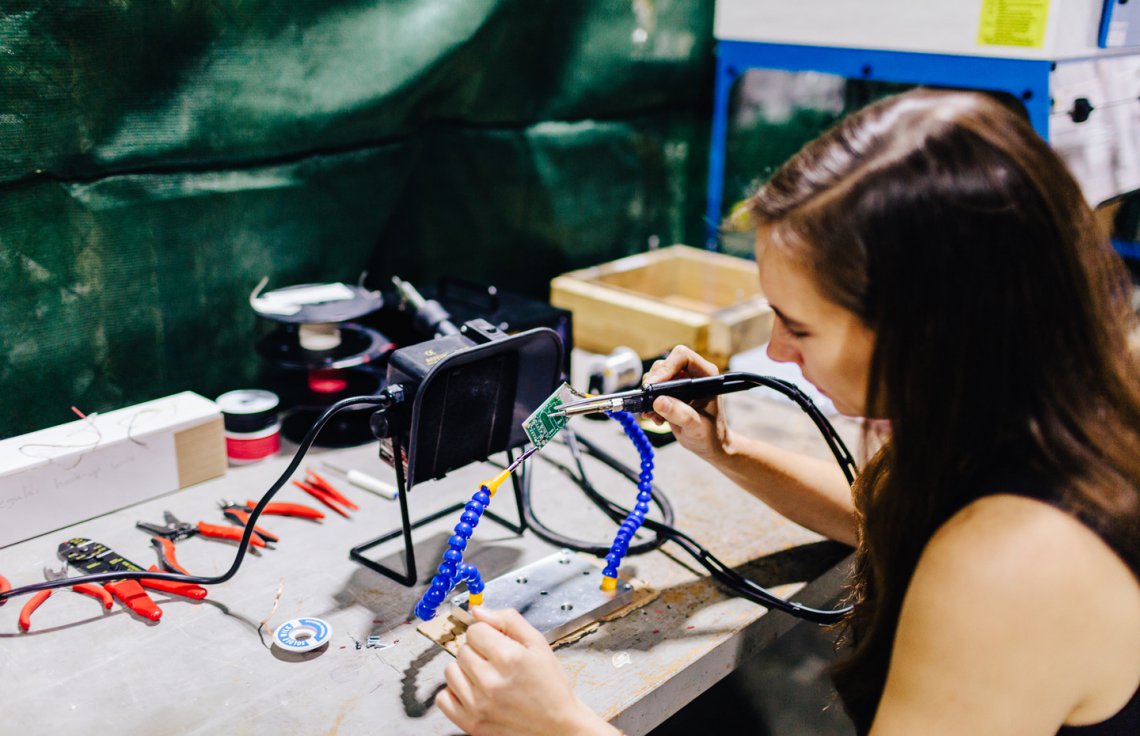
Her Perspective
What are some of the challenges you have faced being a female in engineering?
One of the most frustrating recurring scenes is a line of people waiting to talk to Louis at an Accion conference or display booth while I stand alone and Vanna-White the models we brought. I have to say “Hello, I work here too and can answer your questions!” I’m usually dismissed before I’ve even had a chance and it’s disappointing. The other side of the coin is in college for example, I stood out more and received more attention than my peers as the only woman in my graduating class, so in that case I think it was advantageous.
What is the most common misconception or misunderstanding people have about your career as a “rocket scientist”? What would an average day look like?
People hear “rocket science” and expect to come into the lab and see building-sized boosters and then realize our engines are the size of a quarter. But they’re very efficient!
On an average day, we wear spacesuits and float around in our zero-gravity chamber all day. Well that’s wishful thinking, but our job actually is really cool. Most days, we strive for a balance between production of our first product and research into future ones. My team is currently split between test setup design and build, manufacturing our first batch of products, and researching a new propellant for the government. I also created a board of challenges with a prize at the end of the year so this quarter we’re each learning a new skill or subject and holding a seminar at our office, volunteering for 2 hours, and reading a business book to discuss with the team at a fireside chat.
You have been involved in mentoring middle school and high school girls for small-scale rocket competitions. Who was your mentor growing up and how important do you think mentorship is to young girls?
I didn’t really have a mentor when I was younger but fortunately I’ve had a handful of amazing ones over the past 10 years. They’ve given me their trust and confidence and it’s been really empowering both from a practical aspect and from a softer, psychological one. They trust me to give talks in their place and not mess them up, they introduce me to their own mentors and role models, they answer my call when I am stuck on something, and they share with me their lessons learned managing and leading people.
On days when people try to take my job and I agree that they would probably be better at it than I am, I think of all the people in my corner that believe in me. Girls in particular face these situations often so I think it’s important to have people to turn to that can talk you through challenges or off of the proverbial career ledge.
And finally, what do you wake up looking forward to? What’s next for your career?
For Accion, I think there is so much to do in the space industry beyond propulsion and I can’t wait to get started. After we’re a little more stable, we’ll start looking to other systems or areas of the value chain. I can’t wait.
Personally, I look forward to continuing to grow as a leader. Every day I’m challenged in new ways and I think as Accion evolves the challenges will just become different, but never mundane. It’s scary exciting--I’ve never had to learn so many new things in such a short period of time and I wouldn’t rather be doing anything else in the world.
And after Accion, I plan to apply to the astronaut corps!
You May Also Like
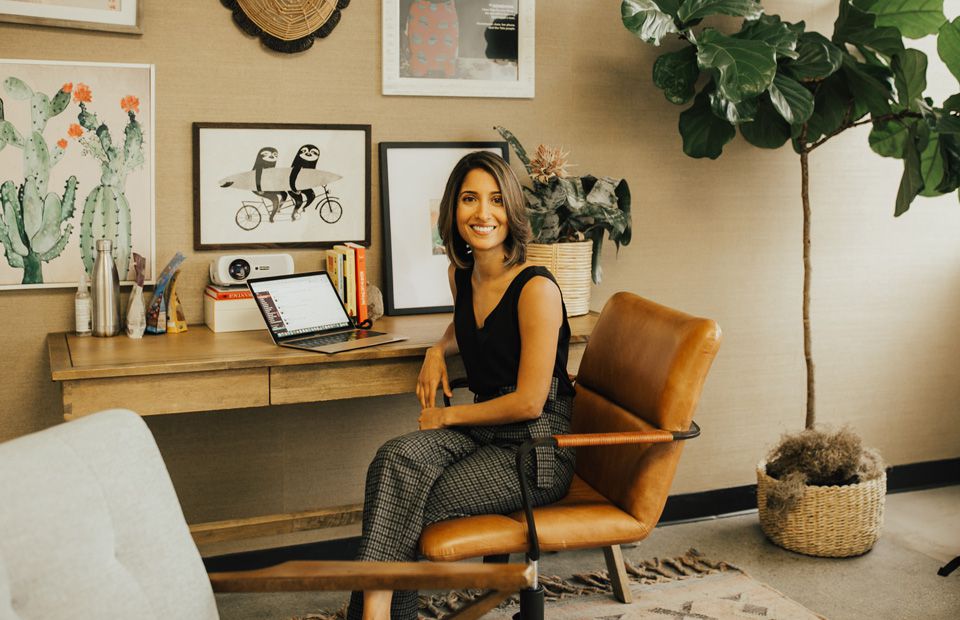
Technology
A Tech Founder on Why Being an Outsider Is a Strength
"I actually think most successful founders are rebels, of a sort. We’re trying to do new things and take on entrenched systems or ways of thinking. What makes me and our company different is that we’re outsiders."
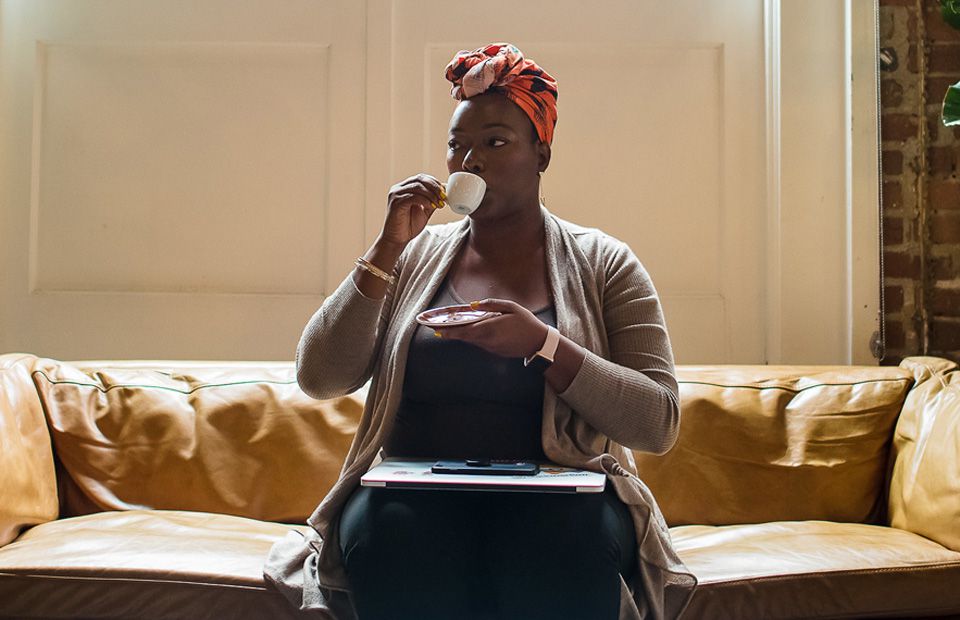
Technology
Omoju Miller—Tech Veteran, Leader, and Volunteer Advisor to the Obama Administration—on The Crucial Role of Creativity in the Tech Industry
"If you are in an environment where you feel marginalized, leave. Don’t try to change it. Go and look for a place that sees you and lets you be you."
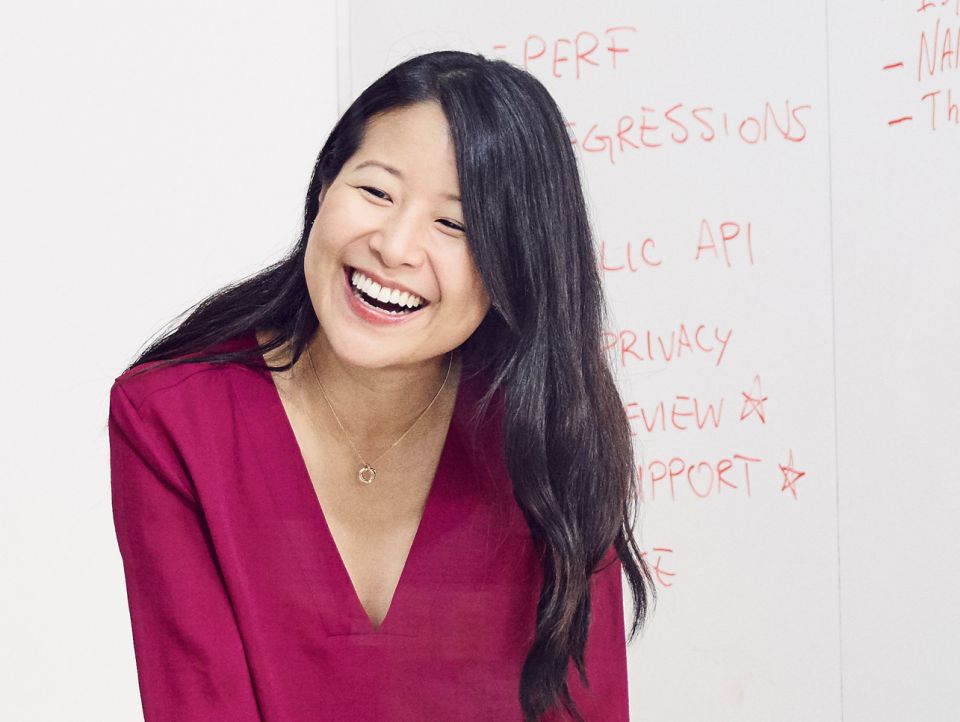
Technology
Sharing Stories as a Software Engineer
We sat down with Apple software engineer Emilie to learn about her day-to-day working at Apple along with what it takes to run the perfect meeting and her favorite ways to unwind.
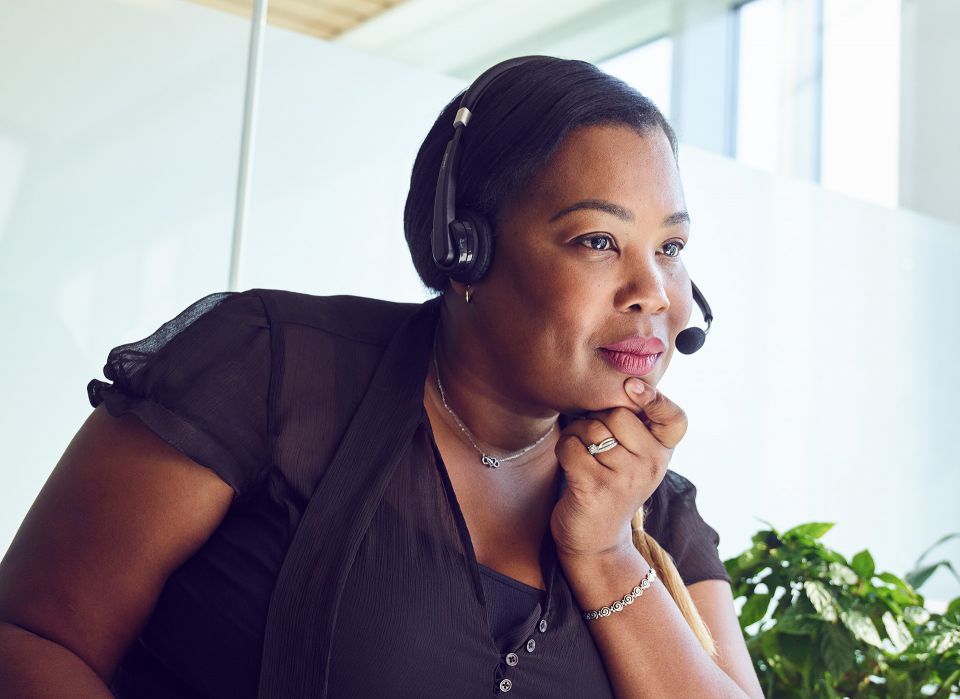
Technology
Creating Impact with Apple
We sat down with Apple's Senior Developer Partner Relations Advisor, Cris, to learn about what it takes to create a lasting impact within a large company. She shares a typical day in the life, her favorite book recommendations, and her top four tips to running a meeting.
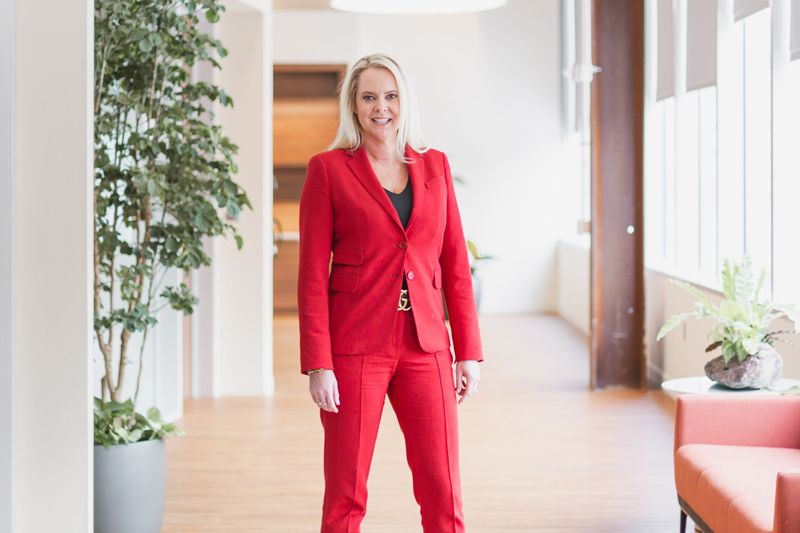
Technology
Salesforce’s Senior Vice President of Sales on Unconscious Bias, Failure, and Innovative Leadership
"Do not be afraid to fail, just bring your best self to the table."
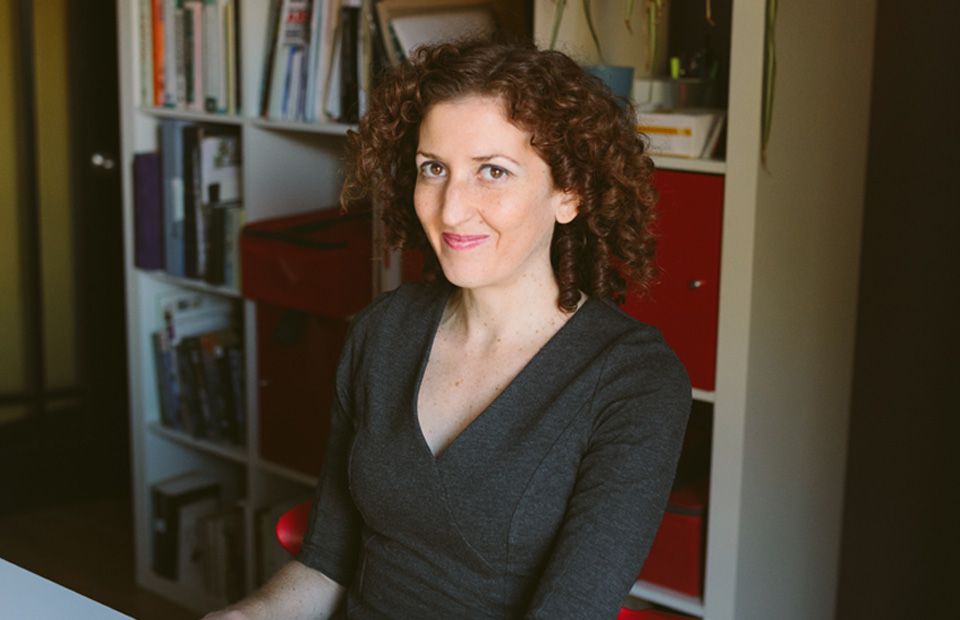
Technology
A Director of Engineering on Tech + Leadership
"I don’t believe in 'having it all'. If you spend more time on one thing, then you spend less time on another thing. All we can do is make choices on how to spend our time."
Get the Best Career Advice Delivered To Your Inbox
Join our newsletter to stay in the loop.
